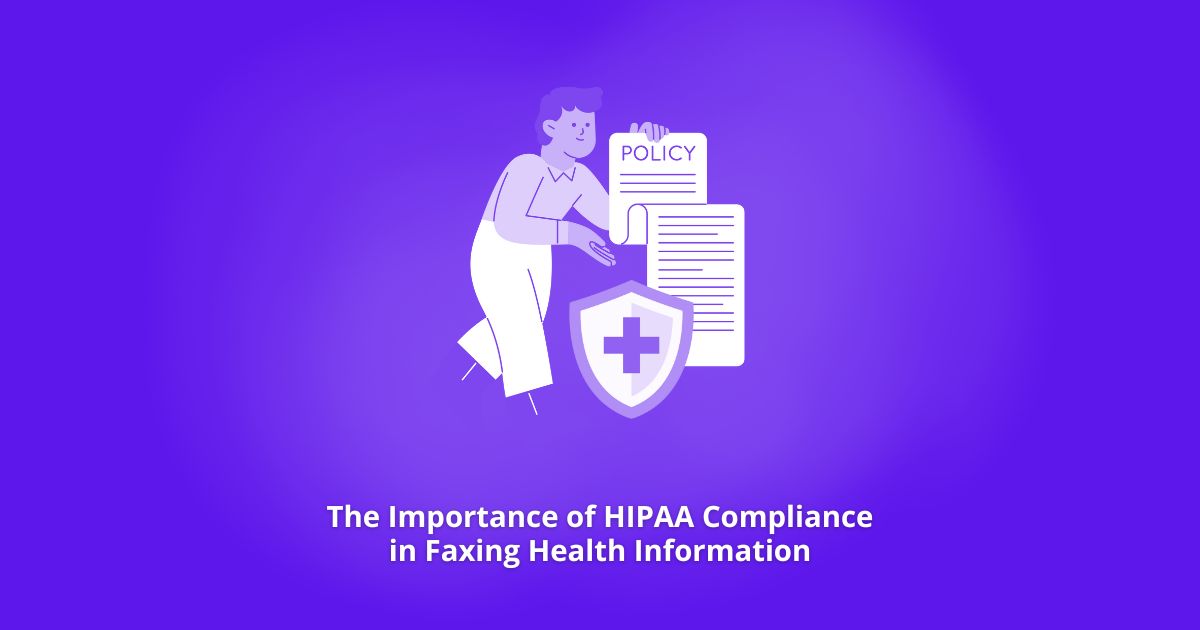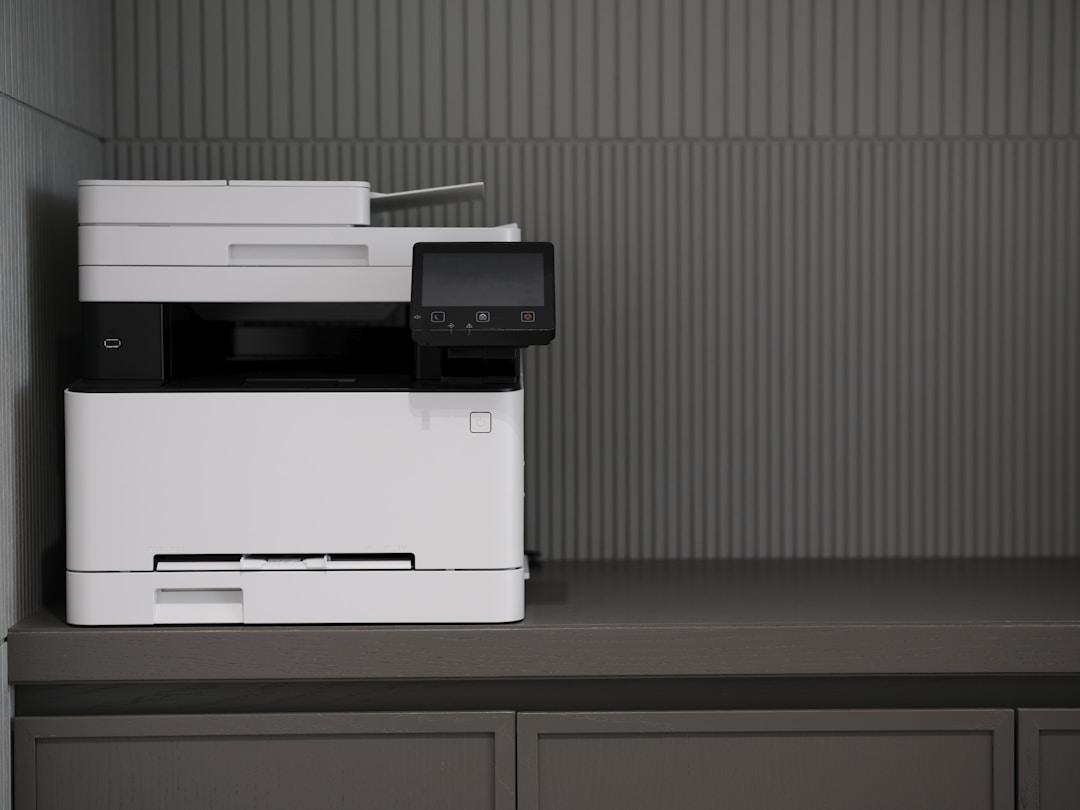Disclaimer:
The information provided herein is intended for general informational and educational purposes only and does not constitute legal advice. HIPAA regulations and compliance requirements can be complex and subject to change. Readers should consult with a qualified legal or compliance professional for guidance tailored to their specific situation. The author and publisher disclaim any liability associated with actions or decisions based on this content.
The Health Insurance Portability and Accountability Act (HIPAA) has become a critical standard in the healthcare industry, particularly when it comes to the handling of patient information. Ensuring HIPAA compliance is essential for healthcare providers when faxing sensitive health records and personal data to protect patients’ privacy and security.

With stringent regulations in place, navigating these guidelines can be complex but necessary to avoid legal repercussions and maintain trust with patients. Keep reading to delve into the vital considerations and best practices in HIPAA-compliant faxing in healthcare.
Best Practices for HIPAA-Compliant Faxing
To stay HIPAA compliant when faxing health information, healthcare providers should establish a clear fax policy. This includes verifying fax numbers, confirming recipient details, and getting patient consent when needed. Staff should be trained on proper handling of PHI, especially when disposing of faxed documents, and fax machines should be kept in secure, access-controlled areas.
Many providers are now turning to HIPAA fax solutions like secure online fax services that offer encryption, audit trails, and secure storage. Choosing a HIPAA-compliant provider who will sign a business associate agreement is key. Regular audits and updates to fax procedures help ensure ongoing compliance and reduce the risk of unauthorized access.
Understanding HIPAA and Its Role in Protecting Health Information
HIPAA, or the Health Insurance Portability and Accountability Act, was enacted in 1996 to protect the privacy and security of health information. It sets regulations for healthcare providers, insurance companies, and their business associates to handle protected health information (PHI). The Privacy Rule defines PHI and sets standards for its protection, including de-identification and security measures.
HIPAA also grants patients the right to access their health information, make amendments, and be informed about who has access to their records. Healthcare providers must follow HIPAA guidelines and train staff to maintain compliance. Traditional faxing, while reliable, can pose risks if not properly handled, so secure handling, flagging, and training staff on proper procedures are essential elements of HIPAA compliance.
The Risks of Non-Compliance with HIPAA in Faxing
Faxing can lead to inadvertent HIPAA violations, damaging healthcare organizations’ reputations and trust. Non-compliance can result in fines ranging from hundreds of thousands to hundreds of thousands of dollars. Repeated violations can intensify the penalties. Non-compliance can cause operational disruptions, diverting resources from patient care.
In severe cases, HIPAA violations can lead to criminal charges, including knowingly obtaining or disclosing PHI without permission. This underscores the importance of strict adherence to HIPAA mandates and the potential for significant financial and operational losses.
Technological Solutions for Secure Faxing in Healthcare

Advancements in technology have enabled healthcare providers to secure fax transactions through electronic fax services, which use encryption protocols to transmit PHI over the internet. These cloud-based services store data securely and provide quick access to faxed documents. They can integrate with electronic health record systems, streamlining workflows and reducing human error.
Modern fax solutions also offer audit trails, allowing healthcare providers to monitor compliance and respond to potential breaches in real-time. Partnering with reputable providers who understand HIPAA intricacies is crucial for healthcare organizations to stay ahead of potential threats and maintain compliance while using convenient and efficient faxing methods.
Legal Implications of HIPAA Violations in Fax Communications
Non-compliance with HIPAA in fax communications can result in legal consequences, including civil penalties and potential lawsuits. Healthcare providers may face corrective action plans and regular compliance audits to prevent future breaches. Criminal charges may also apply, with fines and imprisonment based on the severity of the breach.
Healthcare organizations may also face reputational damage, including loss of clientele, strained relationships, and a tarnished brand image. Patients have the right to file complaints, which can trigger investigations and further scrutiny. Healthcare providers must be proactive in their compliance efforts to avoid legal penalties and uphold their ethical obligation to protect patient information.
Altogether, the importance of adhering to HIPAA regulations when faxing health information cannot be overstated. Compliance safeguards patient privacy, fosters trust within healthcare relationships, and upholds the legal and ethical standards of the medical profession. As the landscape of information sharing continues to evolve, healthcare providers must remain vigilant and proactive in implementing robust HIPAA-compliant faxing practices along with engaging secure technological solutions.